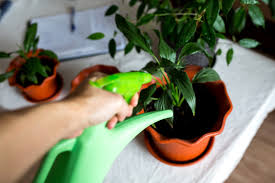What is the difference between synthetic biology, biotechnology and biochemistry?

The exact difference between Synthetic Biology and Biotechnology is this: The Synthetic Biologist tries to make an artificial biologic element (enzyme, piece of DNA etc.) in his lab. Whereas the Biotechnologist tries to isolate the biologic element in its natural form without modifying it. The Biotechnologist does not intervene with nature. If he does then he becomes a Synthetic Biologist. Biochemistry on the other hand side associates with Molecular Biology. What differentiates the two Scientists is basically the perspective that see things. The Biochemist is interested mostly in Chemical Reactions, while the Molecular Biologist sees matters more theoretically from the perspective of life and organism. The line that divides both disciplines is not clear though and all matters on Philosophy . Molecular Biology as a discipline that was created as a reaction of several Scientists upon an older common view of Biochemists that the cell was merely a sack with enzymes. Biolog...



